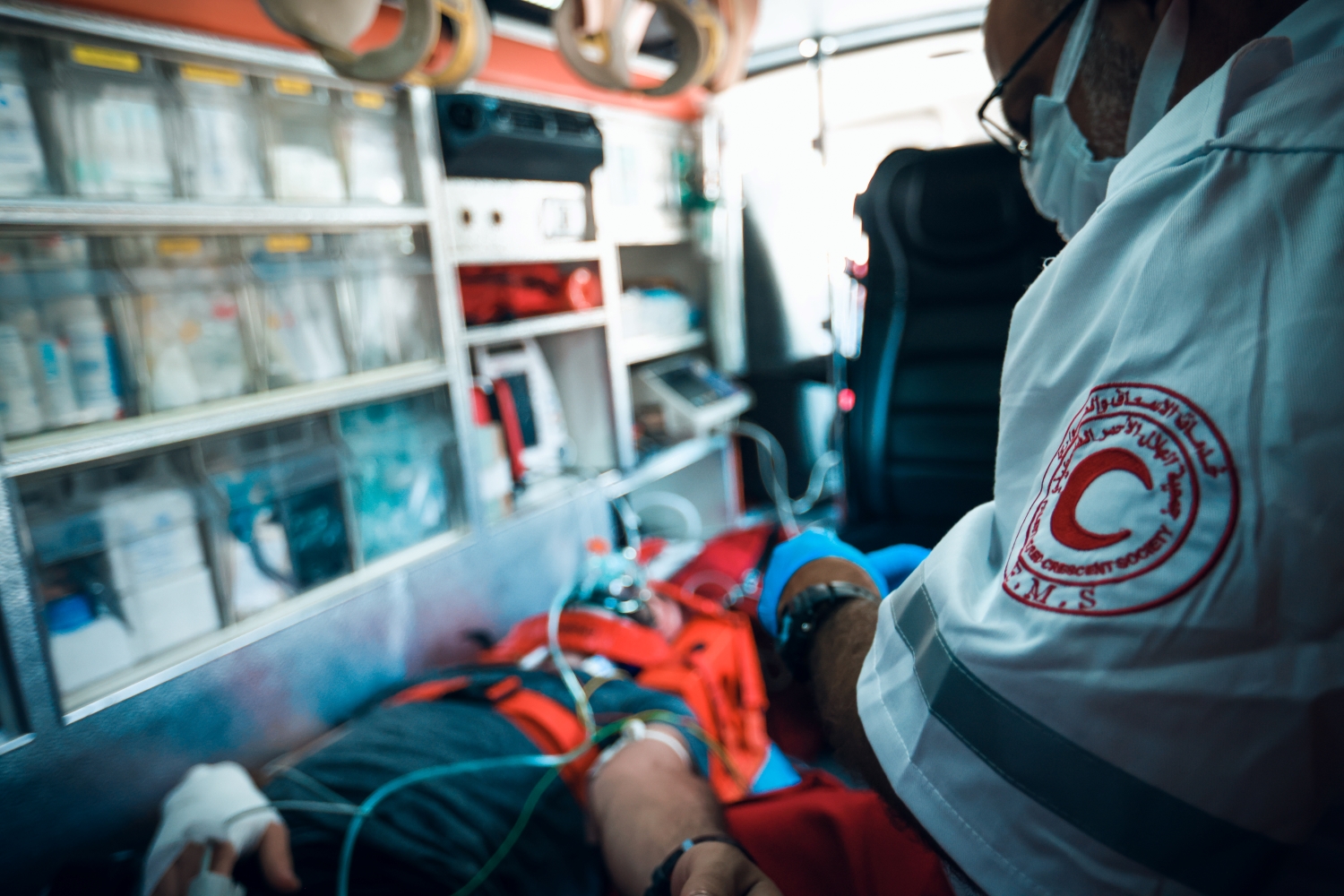
32-year-old Ahmad from the town of Tulkarem in the West Bank has been a volunteer paramedic with the Palestine Red Crescent Society (PRCS) for ten years.
In the early hours of Tuesday, 5 September, Ahmad travelled with other paramedics to Nur Shams refugee camp, southeast of Tulkarem, to respond to emergency medical needs of the residents during an Israeli incursion. Three PRCS ambulances and one private ambulance reached different entrances to the refugee camp after being notified of injuries. However, they were all prevented from entering the camp by Israeli military jeeps.
Ahmad received a call from within the refugee camp informing him that a person had been critically injured with live ammunition. After the ambulance was prevented access, Ahmad and another PRCS paramedic entered the camp on foot. There they found 21-year-old Ahed Abu Harb. He had sustained a severe head injury and showed no signs of life. Ahmad and his colleague took Ahed to the ambulance, which transferred him to Thabet Thabet Hospital in Tulkarem.
“On the way to the hospital, we noticed the military jeep that had previously prevented our access to the camp was following us. The driver of the jeep kept honking and signalling us to stop, but we knew we had to transfer the patient. At the hospital, Ahed was examined by the medical team and pronounced dead.”
On the way back to the PRCS centre in Tulkarem, Ahmad recalls how a military jeep pulled up beside the ambulance at a traffic light and signalled them to stop. Other military jeeps (around five in total) then surrounded the ambulance, and a military officer ordered the driver to get out.
“Two military officers came from behind the ambulance, pointed their guns at me and the other paramedic inside, and ordered us to get out. As we got out of the vehicle, the soldiers started pushing us and ordered us to take off our paramedic vests. They pushed the three of us towards a wall and forced us to stand facing it, while shouting at us. At some point, one of the soldiers started shooting in the air to intimidate us. They violently searched us and ordered us to pull up our shirts, assaulting us physically and insulting us. While we were standing next to the wall, the ambulance driver’s phone rang. A soldier took the phone and threw it on the ground. They continued detaining us, while other soldiers entered the ambulance and started throwing out the medical kit from inside. A soldier broke one of the ambulance windows. After throwing all the equipment out of the ambulance, they left without saying anything.”
Ahmad joined PRCS as a volunteer ten years ago, during Eid. He said, “This is not the first attack we have faced, but I have not experienced any as violent as this. We are frequently stopped and prevented access, ordered to turn back, and verbally attacked, and have guns pointed at us.”
Despite the difficulties, Ahmad remains committed to his volunteer work. “Such attacks will not stop me from going to the field. During one of the incursions of the camp, a bullet went through the window of the ambulance. The next day there was another incursion, and we were back in the field. I am not scared or put off continuing my work because of such experiences. On the contrary, I still volunteer even when I am not scheduled to be on duty. I see firsthand the impact and importance of our work and, when I’m in the field, all I think of is the people who need our support.”








